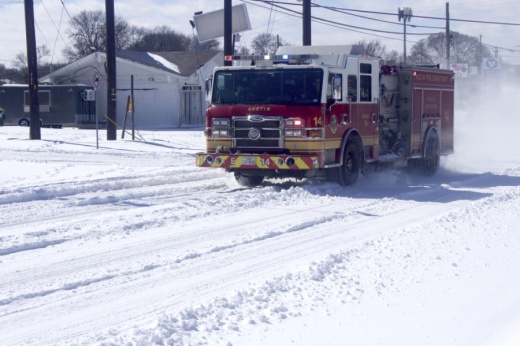Carbon monoxide is an odorless, invisible gas produced by burning gasoline, propane, wood, charcoal and other fuels. If it builds up in a confined space and is breathed in, it can replace oxygen in the blood, leading to carbon monoxide poisoning and possible death.
Matt Zavadsky, chief strategic integration officer at MedStar Mobile Healthcare in North Texas, said crews have treated 11 patients for carbon monoxide poisoning since Feb. 15. Nine cases were serious enough to require the patients be transported to area hospitals, he said.
“A carbon monoxide poisoning call is typically very rare, so this is very, very high,” Zavadsky said.
According to Houston Fire Chief Samuel Peña, the department has responded to over 90 calls related to carbon monoxide in the last 24 hours. Austin-Travis County EMS responded to 13 calls for carbon monoxide poisoning from midnight Feb. 15 to midnight Feb. 16.
Generators should be placed outside and be at least 10 feet away from buildings. They should not be operated indoors or in garages, according to the Texas Department of State Health Services. In addition, vehicles should not be kept running inside a garage or other enclosed space, even with the door open. Outdoor grills, camp stoves and other appliances should not be used to heat a home.
Symptoms of carbon monoxide poisoning include dizziness, drowsiness, severe headache, weakness, nausea and confusion. Anyone with one or more of these symptoms should move to a well-ventilated area outdoors and receive immediate medical attention.
People without power can stay warm by closing blinds or curtains to trap heat inside, closing off rooms to avoid wasting heat, stuffing towels or rags in cracks under doors, and wearing multiple layers of warm, loose-fitting clothing. Eating and drinking on a regular basis will also help because food can warm the body.
Around 200 warming centers have been opened in the state of Texas to offer people a place to stay until power is restored. For information on additional assistance and resources, residents can call 211.





